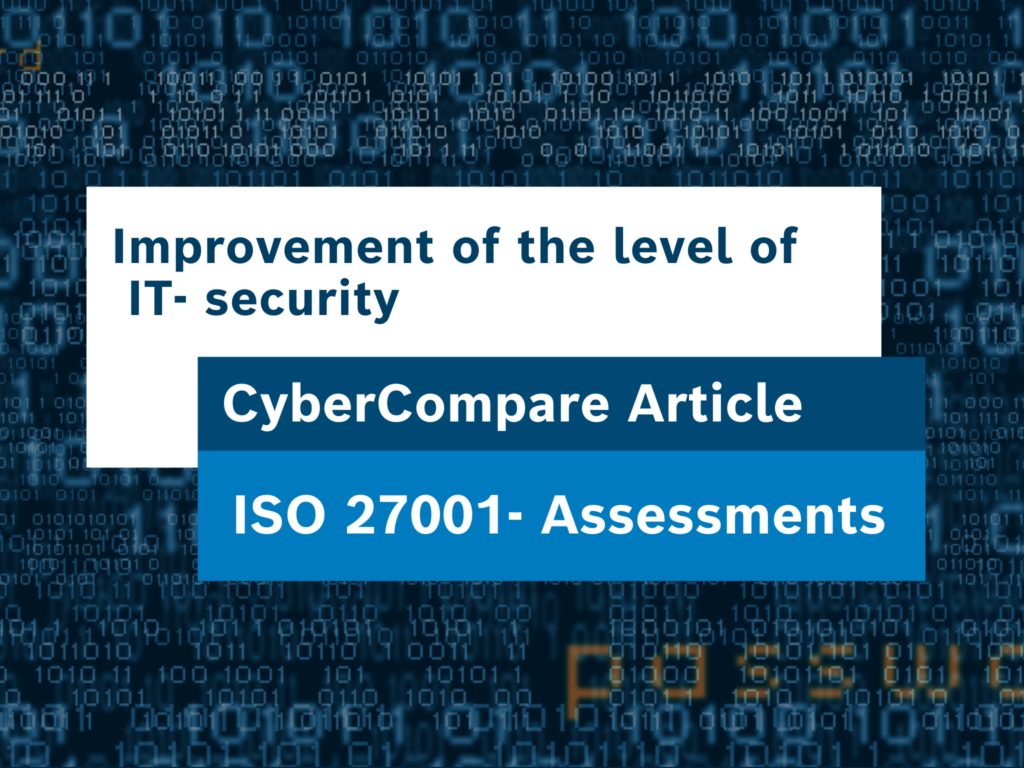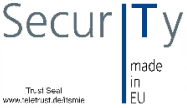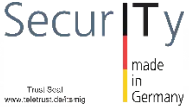In an increasingly digital world, data breaches and cybersecurity threats have become a common problem for businesses of all sizes and industries. To mitigate these risks, organizations need to prioritize their security measures. In this article, we will explore how ISO 27001 assessments can significantly increase an organization’s security maturity level.
From ISMS to norm, or vice versa?
ISO 27001 is a globally and international recognized standard for information security management systems (ISMS). It provides a robust framework to help organizations protect their sensitive data. By default, it defines the criteria for establishing, implementing, maintaining and continuously improving a company’s ISMS. An ISMS is a holistic approach and framework for managing information security risks. The aim of the ISMS is to ensure the confidentiality, integrity and availability of sensitive data.
ISO 27001 Assessments
Assessments are carried out to assess a company’s compliance with the standardized requirements. They include a systematic and comprehensive review of the company’s policies, processes, procedures, and controls related to information security. These assessments are usually carried out by internal teams with expertise in information security management or by external auditors when an independent assessment is required (e.g. to obtain appropriate certification).)
Importance and benefits of ISO 27001 assessments
Identification of vulnerabilities: The assessments thoroughly examine an organization’s information security practice and uncover potential vulnerabilities in processes and systems. By identifying these gaps, organizations gain clues and insight into areas that require immediate attention and improvement to reduce risk.
Risk management: ISO 27001 emphasizes a risk-based approach to information security. The assessment process helps organizations assess and prioritize risks so that they can implement appropriate controls and countermeasures. This proactive approach significantly strengthens an organization’s ability to mitigate potential threats.
Compliance and legal requirements: Special legal and regulatory requirements apply to the processing of sensitive data. ISO 27001 assessments help ensure compliance with these commitments and reduce the risk of penalties, litigation, and reputational damage.
Improved safety culture: The assessments also promote the safety culture within a company. By engaging employees at all levels, the assessment process raises awareness of the importance of information security and communicates best practices across the organization. This change leads to an improved security posture and greater resilience to potential threats.
Continuous improvement: ISO 27001 assessments are not a one-time event, but part of an ongoing process. The regular monitoring and evaluation of information security controls is an essential part of an ISMS and corresponding standards to ensure their effectiveness. Through a mindset of continuous improvement, organizations can adapt to new threats and evolving technologies, ensuring the long-term security of data and availability of processes
Conclusion
At a time when data breaches and cyberattacks pose significant risks to organizations, achieving a high level of security maturity is critically strategic . ISO 27001 assessments provide a systematic and structured approach to information security management that helps organizations identify vulnerabilities, manage risk, and achieve compliance. It does not necessarily have to be about the final certification, which is always associated with additional effort and costs. By prioritizing information security and conducting regular assessments, organizations can significantly increase their security maturity, protect their critical assets and build trust with customers and stakeholders. Bosch CyberCompare and specialized service providers can accompany you on your way to implementing the project methodically and efficiently according to proven best practice approaches.
Please remember: This article is based our knowledge at the time it was written – but we learn more every day. Do you think important points are missing or do you see the topic from a different perspective? We would be happy to discuss current developments in greater detail with you and your company’s other experts and welcome your feedback and thoughts.
And one more thing: the fact that an article mentions (or does not mention) a provider does not represent a recommendation from CyberCompare. Recommendations always depend on the customer’s individual situation.






